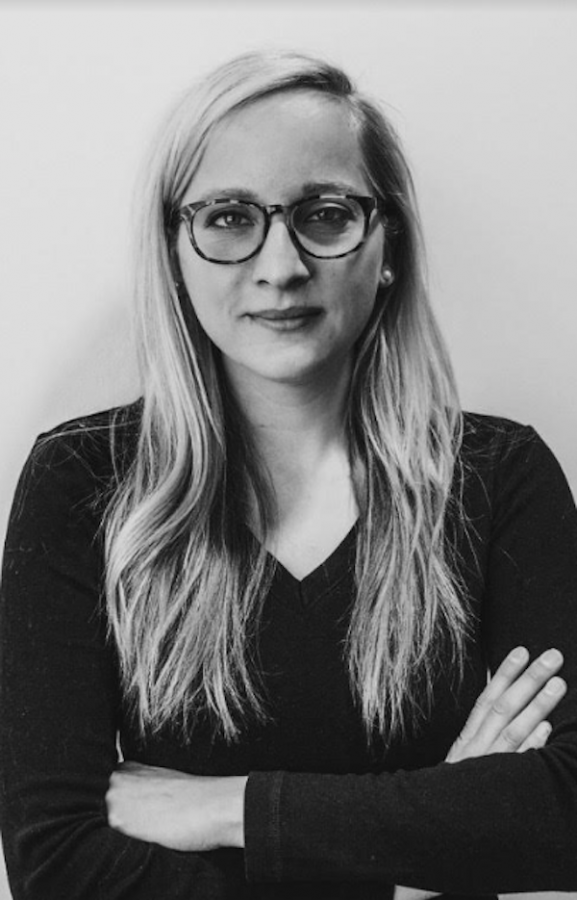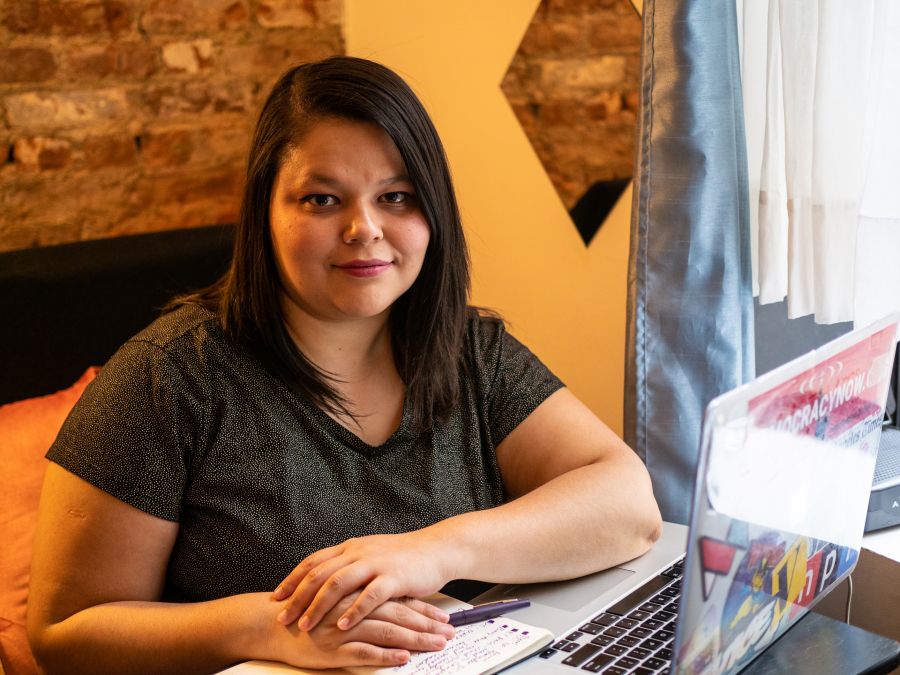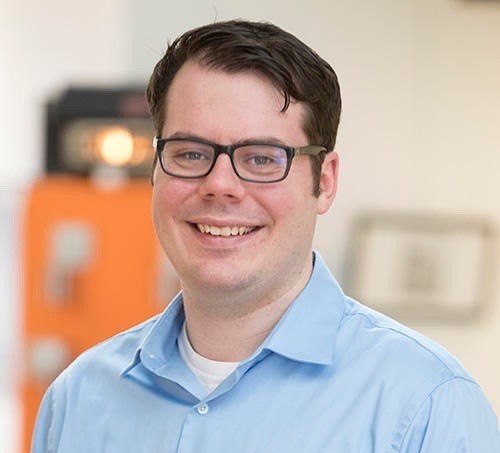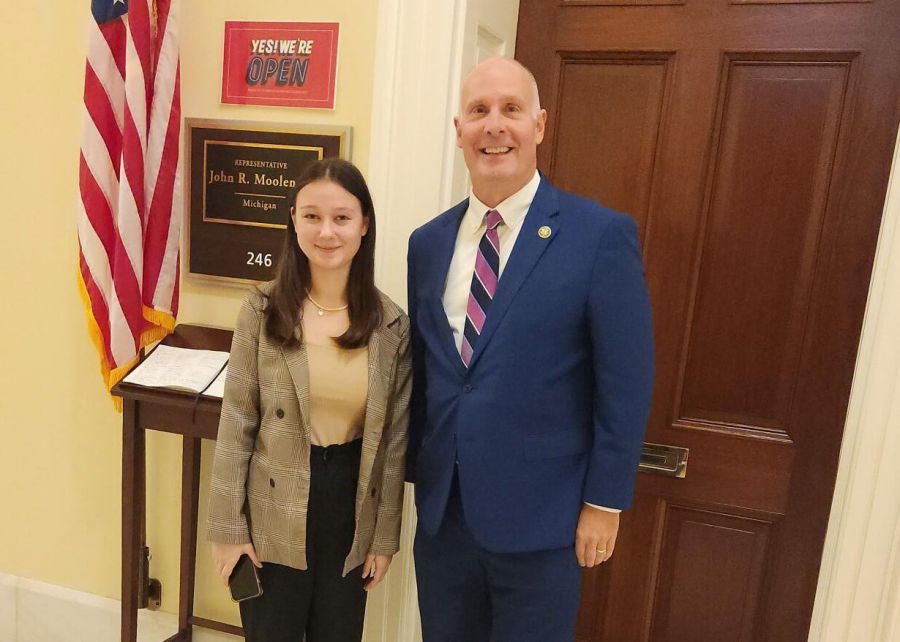Where are they now? NNAF News Fellows
Carol Pierce
Jan 5, 2021
In 2013, National Newspaper Association and National Newspaper Association Foundation began a program for college journalists to address widespread concerns about declining news literacy. Designed to help young writers distinguish fact from fiction in leading news stories, the News Fellows program brought six to 10 young journalists to Washington D.C., under generous sponsorships from various state press associations, to cover a national news story written for their local audiences during NNA’s Community Newspaper Summit/Day on the Hill.
News Fellows were paired with NNA mentors, who guided them through a series of interviews to give them a quick immersion into the theme of that year’s program. When the Fellows returned home, they had about a month to wrap up their news-gathering and produce a story. Publishers’ Auxiliary published most of the stories and filed them on the NNA/NNAF website.
The program was chaired by former NNA and NNAF President Elizabeth Parker, president of New Jersey Hills newspapers, who served as coordinator for the on-site events. Super-mentor was Steve Haynes, president of Haynes Publishing Co, Goodland, Kansas. More than 50 student journalists cycled through the program before it was suspended during the coronavirus interruption of NNA’s Day on the Hill Summit, and more than a dozen NNA members served as mentors for these students.
Pub Aux wanted to know: where are they now? And what do they have to say about their intense three-day introduction into national journalism? Here are some of their responses.

LAURYN HIGGINS, CLASS OF 2018
Sponsored by the Nebraska Press Association.
Theme: Media Literacy
Mentors: Elizabeth (Liz) Parker, Steve Haynes, Merle Baranczyk, Allen Beermann, Matthew Paxton and Jerry Reppert
Q. Where are you now, and what are you doing?
A. After graduating with my master’s in journalism in 2018, I took a job with the University of Nebraska-Lincoln, as an adjunct journalism professor and I’ve been doing that for two years. In March 2020, I began working for The New York Times as a news assistant, helping track and report on the coronavirus.
Q. Describe the story you wrote as a result of your interviews. What was your general theme?
A. The story I wrote was on media literacy and its necessity in public schools in Nebraska. I interviewed Nebraska senators about policies and education requirements and learned that the term “media literacy” does not appear in the state of Nebraska’s academic standard, but they call for teaching students about accuracy, credibility and bias. The overarching theme was where is Nebraska with teaching media literacy and where they can do better.
Q. What was the most memorable part of your News Fellows experience?
A. I really enjoyed having local newspaper owners and writers join us as mentors on the trip. It was really incredible to hear from and work with defenders of the free press in their small communities all over the Midwest. I also loved meeting Lally Graham Weymouth. She gave us all our Fellow Awards at the final dinner, and it was truly an honor to hear about all the amazing work she has done in her career.

YUENEN BONAPARTE, CLASS OF 2016
Sponsored by California Newspaper Publishers Association.
Theme: Terrorism
Mentors: Deb McCaslin, Steve Haynes, Cheryl Kaechele, Walter Kaechele, Mark Magyar, Elizabeth Parker and Robert M. Williams Jr.
Q. Where are you now, and what are you doing?
A. I’m a freelance photojournalist, photo editor at Narratively (an online magazine), and I’m also the training and membership coordinator at the National Association of Hispanic Journalists.
Q. Describe the story you wrote as a result of your interviews. What was your general theme?
A. My story was about terrorism threats lawmakers were preparing for in the future. The main theme was how terrorists would evolve and attack in different ways by hacking the U.S. water, electrical or farming systems.
Q. What was the most memorable part of your News Fellows experience?
A. This was my first time visiting Washington D.C. My mentor, Deb McCaslin, was amazing! She took the time to show me the town and really helped me not be overwhelmed by the task of reporting for my story. She showed me that I belonged there and that even though I was not a "regular" print reporter, I could still put together a story that mattered.
Q. If you were going to change anything about the way that big, important issues are covered, drawing upon your News Fellow experience and your career lessons since then, what would you say?
A. Based on my experience, journalists need to make sure important issues are covered by considering diverse voices on the matter. It's easy to find one or two sources that would give you a soundbite; however, as we have seen in the past four years, many voices remain unheard. By not listening to these voices, a lot of our country remains misunderstood and ousted.
It's also important for reporters to not treat ethnic groups as monoliths. Ethnic groups are complex. There are different voices within these groups that matter and need to be considered.

ROBBY KORTH, CLASS OF 2014
Sponsored by Nebraska Press Association.
Theme: Government Surveillance
Mentors: Walter Kaechele, Mark Magyar, Elizabeth Parker, Teri Saylor and Steve Haynes.
Q. Where are you now, and what are you doing?
A. I am a public radio journalist at State Impact Oklahoma in Norman, Oklahoma. It's a journalistic collaboration of Oklahoma's public radio stations.
Q. Describe the story you wrote as a result of your interviews. What was your general theme?
A. It was generally about NSA (National Security Agency) mass surveillance programs. I wrote about what the Nebraska congressional delegation thought about the NSA.
Q. Did any of your interviews leave a lasting impression?
A. I really remember the NSA guy we did an interview with at Fort Meade. He asked to be quoted as a senior official rather than by name, which I thought was weird at the time and still think is kind of strange. But that's kind of how they do things in Washington, I suppose.
Q. What was the most memorable part of your News Fellows experience?
A. Definitely meeting Bob Schieffer. He told some really great stories and was an inspiring presence when it comes to journalism.
Q. Did your experience change the trajectory of your career in any way? If so, how?
A. Funny enough, but it actually made me want to work as a journalist anywhere BUT Washington. It made me realize how important it was to do work in other parts of the country. It was great to have that Washington dateline checked off the reporter bucket list.
Q. Did you pursue, or at least consider, going into newspaper journalism? What can you tell us about that consideration?
A. Yes. I worked as a newspaper reporter at The Roanoke Times in southwest Virginia for five years. When I went there, it was a daily with nearly 100K circ. Now, I believe it's under 30K. I'm so happy I went into newspapers. It was a dream of mine. But cuts were constant and morale was low. I felt like the paper was never somewhere I could make a career, so I decided to pursue a different avenue in journalism. Public radio offers stability, a higher salary, better benefits and the same thrill of doing quality journalism. I love NPR and might have gone this route anyway, but if the economic realities were different, I think I'd still be working in newspapers.
Carol Pierce is the director of Washington programs. Check back in coming months for more stories!










